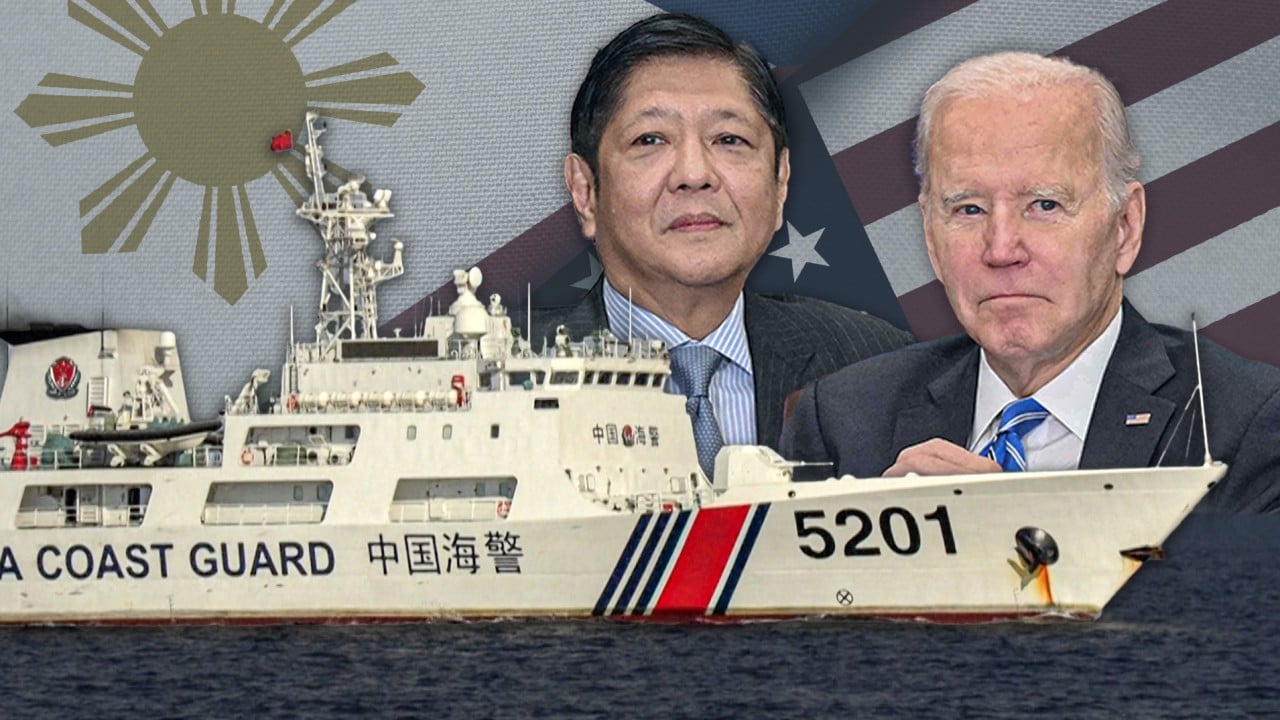
South China Sea: energy exploration should not involve countries outside the region, Beijing says
- Oil and gas drilling must not harm China’s interests and disputes should be ‘handled directly’ between rival claimants, foreign ministry says
- Remarks follow comments by Manila’s US envoy that the Philippines is considering partnering with US, Japan and Australia for energy development
Speaking at a regular press briefing in Beijing, Wang Wenbin added that territorial disputes in the South China Sea should be “negotiated and properly handled directly” between China and rival claimants.
“Regarding the disputes relating to the sea, including resource exploitation, countries concerned must not undermine China’s territorial sovereignty and maritime rights and interests in the South China Sea by exploiting resources, and they must not invite extraterritorial countries to intervene in [such disputes],” Wang said.
“When the time comes that we are going to start exploring it, we’ll have the options to be able to see how we can secure the expedition,” Romualdez said. “We’re working closely with our allies, not only the US but also Japan and Australia.”
Those options include inviting US companies to invest in the resource development, according to Romualdez. Discussions could also include countries such as Vietnam, which have overlapping claims with China.
The Philippines – a net energy importer – has looked for ways to exploit energy in the contested waterway, including through a 2018 joint partnership with Beijing.
Will stronger Manila-Canberra ties lead to Western support in South China Sea?
In January last year, Chinese President Xi Jinping and Philippine President Ferdinand Marcos Jnr agreed to restart talks, but in December, Marcos said negotiations were at a “deadlock” because of heightened tensions at sea and incidents between vessels from the two countries.
To help meet its energy needs, Manila removed a Filipino ownership requirement in 2022 and allowed full foreign ownership of renewable energy projects, such as solar, wind, hydro, and ocean or tidal energy resources, in an effort to make cleaner energy more accessible to the public.
China poised for ‘long game’ with Manila over South China Sea disputes
As ties with have China deteriorated, the Philippines has in recent months stepped up efforts to obtain oil and gas supplies from other parts of the country, including in the Sulu Sea, where Israeli company Ratio Petroleum Energy LP was expected to send a vessel next month to conduct a 3D seismic survey, according to Alessandro Sales, the undersecretary of the Philippines energy department.
Sales said in an interview last month that the country should not rely solely on the resources in Reed Bank – an undersea mountain with a flat top northeast of the Spratly Islands – where exploration by a Philippines-contracted group has been halted because of tensions between Manila and Beijing.


